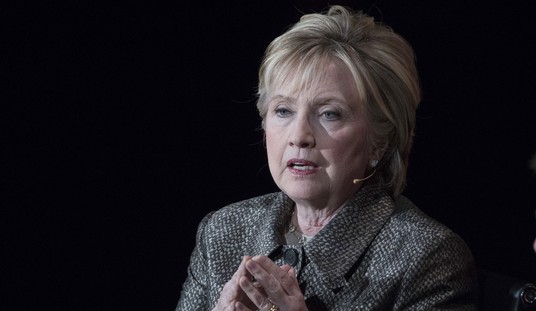Anti-Putin activist Alexei Navalny is slowly recovering in a Berlin hospital after being poisoned with a nerve agent. His convalescence will be long and painful.
Naturally, the finger of blame is pointed at Russian President Vladimir Putin, whose enemies continue to end up dead. In Navalny’s case, he escaped with his life. Others have not been as lucky.
In truth, Navalny, like many Russian opponents of Putin, had angered several other powerful people in Russia, so Putin isn’t the only suspect. But the poisoning has all the earmarks of a state security operation. And since the Federal Security Service (FSB) is under Putin’s direct control, putting two and two together is not that difficult.
But what can anyone do to stop it? The left in the U.S. has been screaming for more sanctions on Russia for four years, since U.S. intelligence confirmed Russian interference in the 2016 election. The EU has been mulling putting more sanctions on Russia and the various friends of the Kremlin who prop up Putin’s rule.
But the reality is that sanctions against Russia will only harm the nations that impose them. Putin has been under sanctions for years and is hardly bothered by them.
A good example is the Nord Stream 2 gas pipeline project.
The Nord Stream 2 pipeline, currently in its final stages of construction, has split the bloc since its announcement in 2015, with Central European countries worrying the link will help strengthen Russia’s leverage in the region.
Germany’s political establishment, however, has long defended the pipeline as a business project, central to maintaining affordable and stable gas supply.
“The majority of Europeans have been against [the project] from the beginning — not just the east Europeans, not just the Poles … but also the French,” Röttgen said in his interview, calling it a “German project against the majority of Europeans.”
Well, that’s an exaggeration. It’s true that Eastern European nations worry about increased Russian influence, but the pipeline is a purely business operation, says Chancellor Angela Merkel.
“Our opinion is that Nord Stream 2 should be completed,” Merkel said at her annual summer press conference last week. “I don’t think it is appropriate to link this business-operated project with the Navalny question.”
Critics do not view Nord Stream 2 as purely a business affair, instead calling it a major win for Russia’s image and standing at the international level. The Navalny poisoning, which draws strong parallels to the 2018 Novichok attack on a former Russian double agent that the United Kingdom has accused the Kremlin of orchestrating, further complicates Germany’s efforts to keep politics out of Nord Stream 2.
“After the poisoning of Navalny we need a strong European answer, which Putin understands: The EU should jointly decide to stop Nord Stream 2,” tweeted Norbert Röttgen, an outspoken Russia critic in Merkel’s conservative party, on Thursday.
That’s political doubletalk. Of course the pipeline is political. It was approved in Germany for political reasons.
But Russia isn’t the only nation that would be hurt by canceling the project.
Gazprom, Russia’s largest company, owns the pipeline project and has covered half of the $10.5 billion (€9.5 billion) price tag. Sanctioning or ending the project outright would likely succeed in inflicting the intended harm against Russia’s important energy sector, but not without collateral damage. Companies in Germany, Austria, the UK, the Netherlands, Switzerland and France also have a stake in the pipeline and would feel the financial crunch.
“We can’t rule it out as an option, but it’s unlikely,” Pagung told DW, although she said Germany could use the Navalny poisoning as an “opportunity” to shift its position on the pipeline without appearing to be caving to US pressure.
The problem is that there are no other sanctions that would make Putin sit up and take notice. He and his henchmen are already under sanctions — both personal and on their businesses. It seems these sanctions are minor annoyances or simply a question of mild inconvenience.
But hitting Gazprom with a $5 billion loss would not only hurt Russia, it would also cost Putin prestige and influence with his oligarch friends. It may even force the Russian president to hesitate the next time he wants to bump off a political opponent.
Weighing the pros and cons of ending Nord Stream 2 would lead to the conclusion that whatever Europe loses as a result of scuttling the pipeline, it would be worth the pain to force Putin to behave.










Join the conversation as a VIP Member